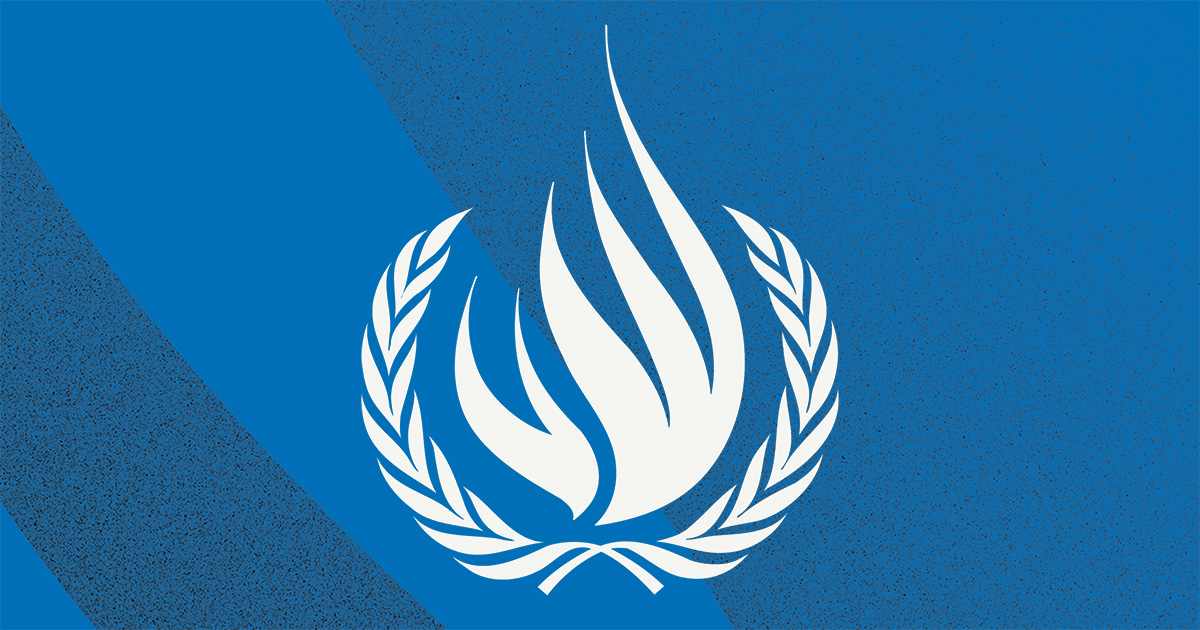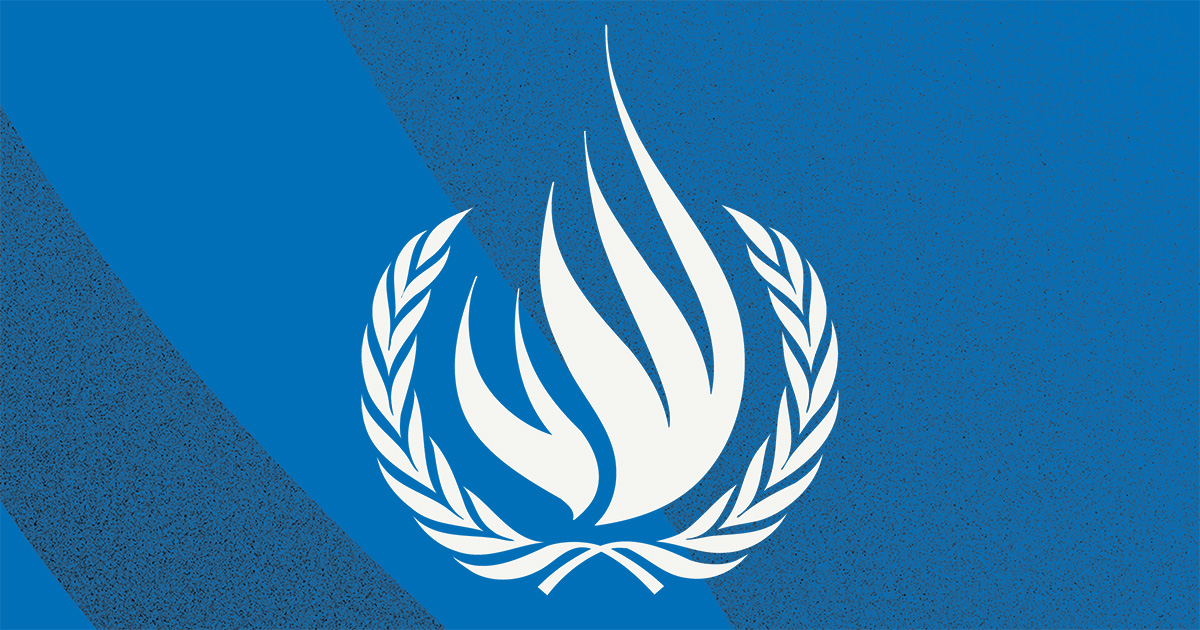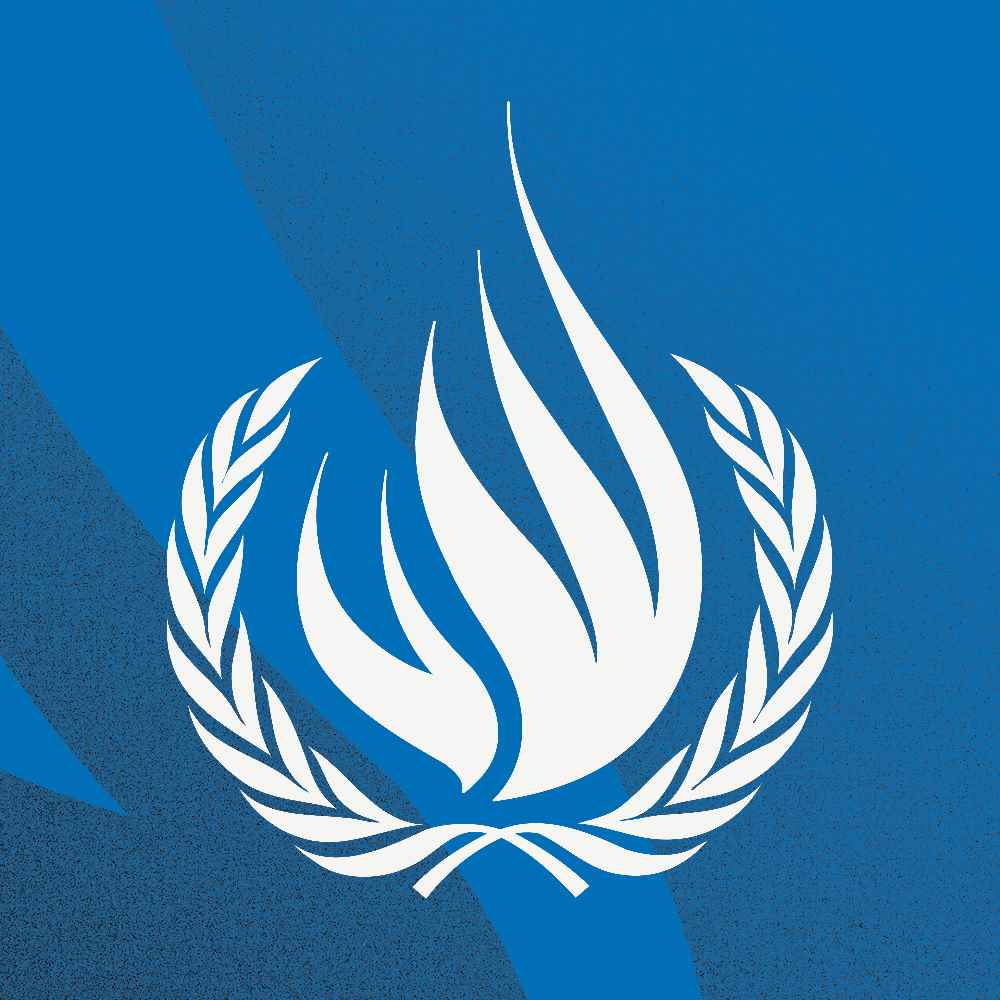
AT
Sixth anniversary of genocidal attacks against the Rohingya
RELATED
STATEMENTS
Statement by Thomas H. AndrewsUN Special Rapporteur on the situation of human rights in Myanmar
PRESS RELEASES
UN expert urges Japan to step up pressure on Myanmar junta
PRESS RELEASES
Comment by the UN High Commissioner for Human Rights Volker Türk on Myanmar
GENEVA (24 August 2023) – Marking the sixth anniversary of the Myanmar military’s genocidal attacks against the Rohingya, a UN expert today called on world leaders to end the paralysis of indifference and take action to hold the architects and perpetrators of this violence to account while supporting Rohingya refugees and internally displaced persons. Tom Andrews, the UN Special Rapporteur on the situation of human rights in Myanmar issued the following statement:
“Responsibility for the immense suffering of the Rohingya starts at the top. Min Aung Hlaing, who led the genocidal campaign, is now at the head of an illegal and illegitimate military junta that is attacking civilian populations throughout Myanmar. He must be brought to justice and be made to answer for his crimes.
On 25 August 2017, the Myanmar military launched a massive offensive to drive the Rohingya people from their homeland in northern Rakhine State. In the weeks that followed, soldiers murdered, raped, and tortured Rohingya civilians and burned Rohingya villages to the ground throughout the region. More than 700,000 Rohingya fled for their lives across the border into Bangladesh. Despite the military’s claims that its “clearance operations” were directed at Rohingya militants and terrorists, Rohingya civilians were the primary targets of the military’s brutal and unrelenting attacks.
The attacks on the Rohingya six years ago likely constitute crimes against humanity and genocide, crimes that should shock the conscience of the world and spur international action. The Rohingya deserve justice for the violence that uprooted them from their homeland, tore apart families, and left untold thousands dead and many more with scars and trauma that will haunt them for the rest of their lives.
The events of 2017 were preceded by decades of violence and oppression against the Rohingya, including widespread and brutal attacks on Rohingya communities in 2012 and 2016. More than one million Rohingya refugees now reside in massive refugee camps in Bangladesh. Approximately 600,000 remain within Rakhine State, where they continue to suffer severe rights restrictions and the threat of further violence.
While responsibility for the crimes against the Rohingya lies squarely with the Myanmar military, the international community has also failed its responsibility to the Rohingya. After six years, the Security Council has not referred the situation in Myanmar to the International Criminal Court, despite the overwhelming evidence of atrocity crimes. Some countries continue to sell weapons to the military that attacked and murdered the Rohingya and is now turning its guns on civilian populations throughout the country. Those nations who support human rights have failed to take the coordinated action necessary to deny the military junta of Myanmar what it requires to sustain its attacks – money, weapons and legitimacy.
The international community has also failed to adequately support the Rohingya in their hour of need. The World Food Programme has been forced to implement devastating rations cuts in the camps in Bangladesh because of dwindling financial contributions from UN Member States. Some governments are backing a short-sighted plan to repatriate Rohingya refugees from Bangladesh before their safety and human rights in Myanmar can be ensured. Few countries have stepped up to support resettlement or other durable solutions for Rohingya.
The Rohingya are tired of empty promises. Their children cannot eat political rhetoric or UN resolutions that go nowhere. They need and deserve the world to end the deadly paralysis of indifference. Immediate action is needed to hold accountable those responsible for genocide and to end the suffering and save the lives of Rohingya who are within and beyond the borders of Myanmar. We cannot let another year go by without principled and decisive action to support justice and accountability for the Rohingya.”
ENDS
Mr. Thomas Andrews (United States of America) is the Special Rapporteur on the situation of human rights in Myanmar. A former member of the US Congress from Maine, Andrews is a Robina Senior Human Rights Fellow at Yale Law School and an Associate of Harvard University’s Asia Center. He has worked with the National Democratic Institute for International Affairs and parliamentarians, NGOs and political parties in Cambodia, Indonesia, Algeria, Croatia, Serbia, Ukraine and Yemen. He has been a consultant for the National Coalition Government of the Union of Burma and the Euro-Burma Network and has run advocacy NGOs including Win Without War and United to End Genocide.
Special Rapporteurs are part of what is known as the Special Procedures of the Human Rights Council. Special Procedures, the largest body of independent experts in the UN Human Rights system, is the general name of the Council’s independent fact-finding and monitoring mechanisms that address either specific country situations or thematic issues in all parts of the world. Special Procedures experts work on a voluntary basis; they are not UN staff and do not receive a salary for their work. They are independent of any government or organisation and serve in their individual capacity.
UN Human Rights country page: Myanmar
For further information and media requests, please contact: Jacqui Zalcberg (Jacqui.zalcberg@un.org)
For media enquiries regarding other UN independent experts, please contact Maya Derouaz (maya.derouaz@un.org) and Dharisha Indraguptha (dharisha.indraguptha@un.org).
Follow news related to the UN"s independent human rights experts on Twitter: @UN_SPExperts
Concerned about the world we live in?
Then stand up for someone"s rights today.
#Standup4humanrights and visit the website at
http://www.standup4humanrights.org











